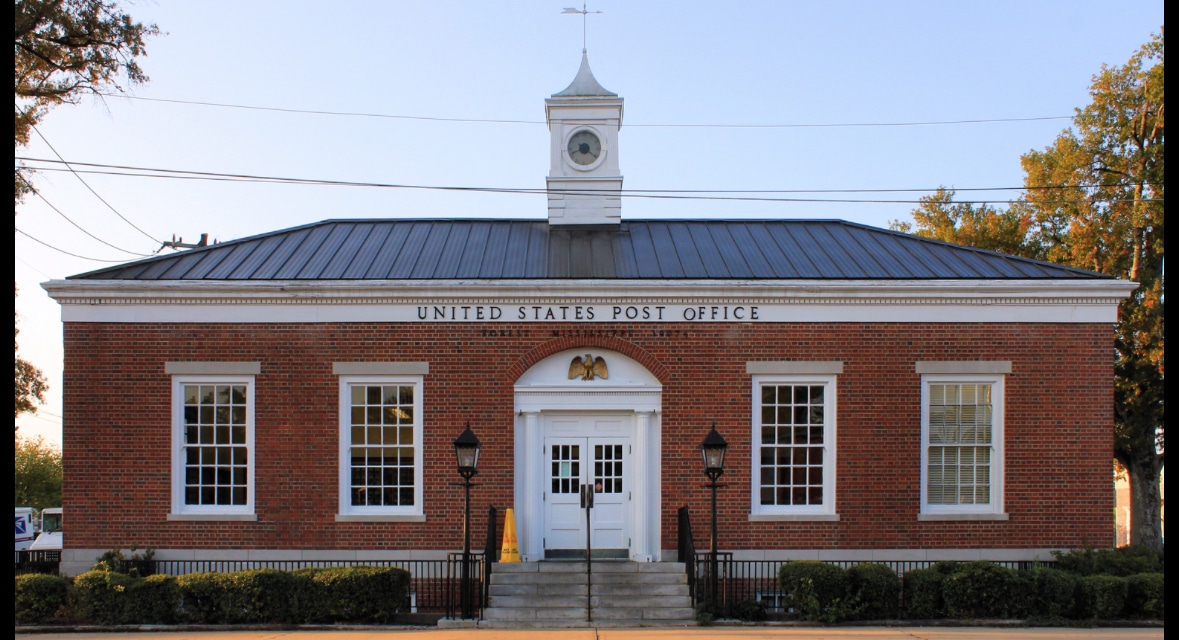This Friday, July 26, marks the 249th anniversary of our nation’s postal service. Beginning in 1775 in the American colonies, the postal service served as a cornerstone for communities.
Even today when we explore the history of communities and towns, post offices are important in that research. As the United States of America leads up to its 250th anniversary of declaring independence from Great Brittain, it is fitting to acknowledge such milestones of our country’s development.
Post offices not only existed in cities and towns but also in less populated areas throughout rural America. A look at old communities involves a look at old post offices. Such post offices served as the hub of most old communities. Post offices, usually accompanied by country stores, sat within a few miles of each other and were known by the name of the settlement or community. Prior to the invention of automobiles, people trekked by foot, wagon or horseback; therefore, community post offices sat within a proximity to which residents could feasibly travel. Sometimes, these post offices were inside the postmaster’s home or in small buildings next door to the postmaster’s home. Oftentimes rural post offices were located inside country stores that sold general merchandise.
Some of southeast Mississippi’s earliest post offices were at Pascagoula (1811), Leakesville (1817), Winchester (1813), Augusta (1821), Crossroads (1834), Americus (1859) and Merrill (1898). Lucedale got a post office in 1899 when the city was part of Greene County. Also in 1899, Howell and Three Rivers got post offices. Mississippi’s first post office opened a century earlier on Nov. 29, 1799, in Natchez.
Only three generations ago, a letter addressed to a recipient could be delivered without naming a road or street, but by merely listing the person’s name and the town or community. Now postal mail must have the recipient’s name, street number, street name, city, state and zip code. Years ago, the late Rev. Millard T. Howell, told me the area where Crossroads Free Pentecostal Church is located was once called Mountain, Miss. That community later became known as Davis and currently goes by the name Buzzard Roost. The Mountain post office operated 1908 until 1922 and only had one mail carrier, Peter Howell. At that time, the community had several residents with identical surnames like Howell, Havard, Rouse and Murrah; some of those had the same given names. Therefore, a person would be identified by his name, followed by his father’s first name in parentheses, for mail to get delivered to the right box. For example, a letter addressed to Simon Howell, son of Peter Howell, would be written Simon (Peter) Howell, Mountain, Miss.
Applications to the government for the establishment of post offices can be found online. Speaking of Mountain, Miss. it is interesting to note that J.B. Goff signed an application on Oct. 6, 1910, to organize a post office for Basin. That application states the reason for needing a post office is that the nearest post offices are six miles away at Mountain and seven miles away at Crossroads. Goff wrote that travel is difficult because of “bad roads and unsettled country.”
If you are wondering who created our country’s postal system, try guessing Benjamin Franklin. He designed it based on a similar communication delivery structure in Europe. And, he served as our nation’s first Postmaster General. Two hundred and forty-nine years have shown many changes in our methods of sending letters and packages. And along the way it left us with community names filled with history.




